Oxford Martin Restatement 8: A restatement of the natural science evidence base concerning grassland management, grazing livestock and soil carbon storage.
Restatements
Oxford Martin Restatements
Our Restatements review the natural science evidence base underlying areas of current policy concern and controversy.
Written in policy neutral terms and designed to be read by an informed but not technically specialist audience, restatements reflect the breadth of opinion on the topic in the science community and involve wide consultation with interested stakeholders.
Why do we create Restatements?
Most policymakers aim to make “evidence-based” decisions but in many areas the evidence base is complex, technical and very difficult for non-specialists to access. This is especially true in contested areas where collecting the evidence is scientifically challenging, and different advocacy groups may interpret the same information in different ways.
As a summary of evidence, restatements:
- Attempt to be as policy neutral as possible
- Are written to be comprehensible for an informed but non-technical reader
- Provide an introduction to the more technical literature
Topics for Restatements are chosen after discussion with policymakers, and today are largely suggested, for example, by science advisors working in government.
The Restatements are funded by the Oxford Martin School. They involve consultation with a very broad community (e.g. researchers, industry, NGOs and government) but are run independently.
What does a Restatement contain?
Restatements consist of three parts:
- A very short paper introducing the topic.
- The Restatement, formally the appendix of the paper - a series of paragraphs numbered for ease of reference, intended to be a standalone summary of the evidence base.
- An annotated bibliography, providing further technical and extensive references to the literature underlying the information in the Restatement.
Not all evidence is equivalent and to help policymakers assess it each component of the Restatement is classified using a set of descriptive codes.
These are adapted to the particular topic, but as an example, these are codes used in the Restatement on bovine tuberculosis:
[Data] A strong evidence base involving experimental studies or field data with appropriate analysis.
[Exp_op] A consensus of expert opinion.
[Supp_ev] Some supporting evidence exists but further work would improve the evidence base.
[Projns] Projections based on available evidence for which substantial uncertainty exists.
How do we produce a Restatement?
- We convene an author group of 6-10 people. They are scientists based at universities and/or research organisations, and are chosen to represent different scientific points of view on a contested topic.
- The Restatement team prepare the first draft and the author group meet to go through the document, paragraph by paragraph.
- After the meeting, the Restatement is revised and successive versions iterated with the author group until everyone is content.
- The Restatement is sent out to review to a large number of stakeholders (30-50 typically) including other researchers, relevant experts working in industry and NGOs, and policymakers.
- The Restatement is revised in the light of these comments, and the near-final version iterated with the author team.
- The Restatement is submitted to a peer-reviewed open access journal.
- The author group make final amendments in the light of referees’ comments.
- The Restatement is published, circulated to relevant stakeholders and made available online, open-access.
Published Restatements
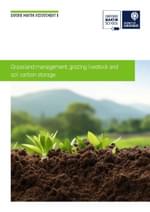

Oxford Martin Restatement 7: A restatement of the natural science evidence base regarding the source, spread and control of Campylobacter species causing human disease
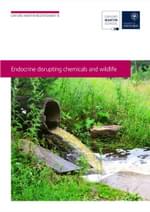
Oxford Martin Restatement 6: A restatement of the natural science evidence base on the effects of endocrine disrupting chemicals on wildlife
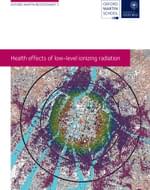
Oxford Martin Restatement 5: A restatement of the natural science evidence base concerning the health effects of low-level ionizing radiation
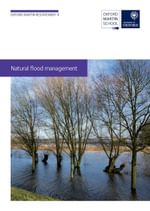
Oxford Martin Restatement 4: A restatement of the natural science evidence concerning catchment-based ‘natural’ flood management in the United Kingdom
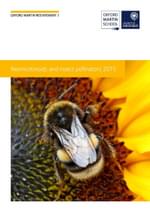
Oxford Martin Restatement 3: A restatement of recent advances in the natural science evidence base concerning neonicotinoid insecticides and insect pollinators
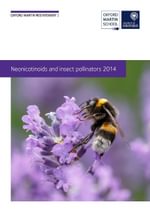
Oxford Martin Restatement 2: A restatement of the natural science evidence base concerning neonicotinoid insecticides and insect pollinators
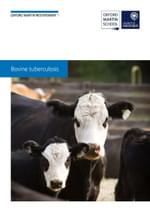
Oxford Martin Restatement 1: A restatement of the natural science base relevant to the control of bovine tuberculosis in Great Britain
Restatements in Progress
- The human health impacts of the use of antibiotics in food-animal production - led by Angela McLean
- The effects of grazing systems on soil carbon sequestration - led by Charles Godfray
For information on the Restatements project, please email restatements@oxfordmartin.ox.ac.uk
Keep in touch
If you found this page useful, sign up to our monthly digest of the latest news and events
Subscribe